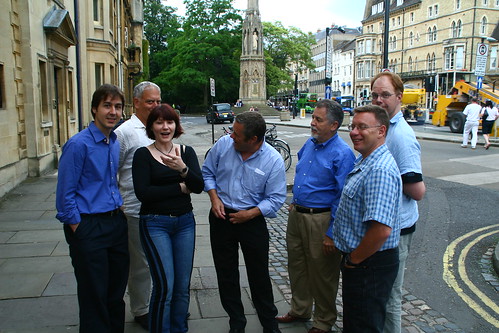Gather round the YouTube video of a campfire, kiddies, and Grandpa will tell you a story of the days before the Web had coalesced into the shopping mall of franchises and brands that it is today.
In those days, bloggers didn’t have Facebook or Twitter to spread word of their memes, photoshopped images, and even their original ideas. And again, in those days, blogs didn’t have commenting capacity coded in; you could add comments on, or switch platforms to a more advanced blogging app that did support comments, or you could do without comments. Heh, we used to have arguments about whether a blogger was obliged to allow comments or, contrarily, that comments were a bad thing (someone was foreseeing YouTube comments).
If we saw a blog to which we wanted to respond, we wrote about it on our own blogs, and made a link to the other site.
Those days saw lots of workarounds and kludges and brilliant innovations to accomplish things that quite ordinary blogging apps do today (if indeed they’re still possible). Among the people who contributed to that ecosystem of connection and innovation was Kevin Marks. (He also used to blog more often than he does now, but I can’t throw stones about that.) So a week or so ago, Kevin was at a W3C meeting, when he realised that it’s important that a blogger be able to link not just to a page, but to specific words on a page. He devised a way for this to work, and Jonathan Neal wrote a script that, if added to a site, would enable links to specific words on a page — what Kevin calls a “fragmention.” Indeed, Jonathan wrote an extension for Google Chrome to enable fragmentions to workthrough the browser, regardless of internal scripting. And they worked out a refined implementation a few days later.
In the old days, we wrote about one another’s ideas and implementations, kicked the tires (or “tyres”), and responded to each other. Like saying, “Thanks, Kevin — this looks very cool. I’ll poke a round and try it — I hope it catches on.”



